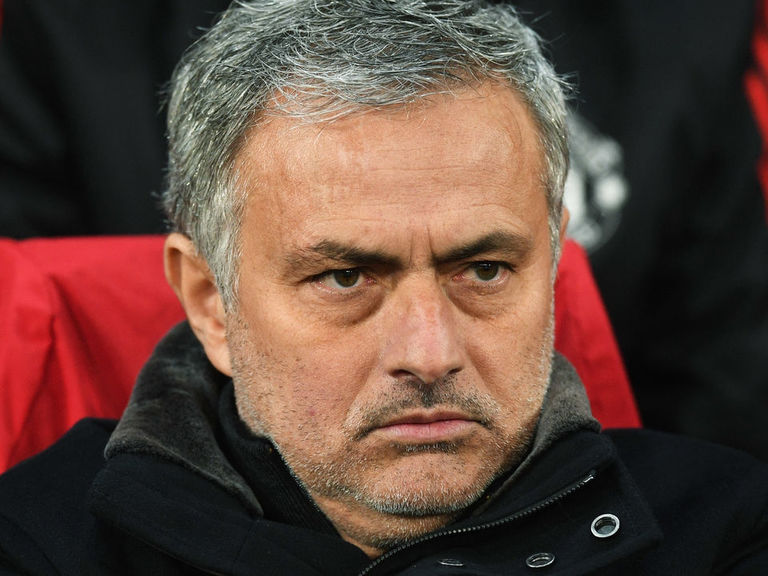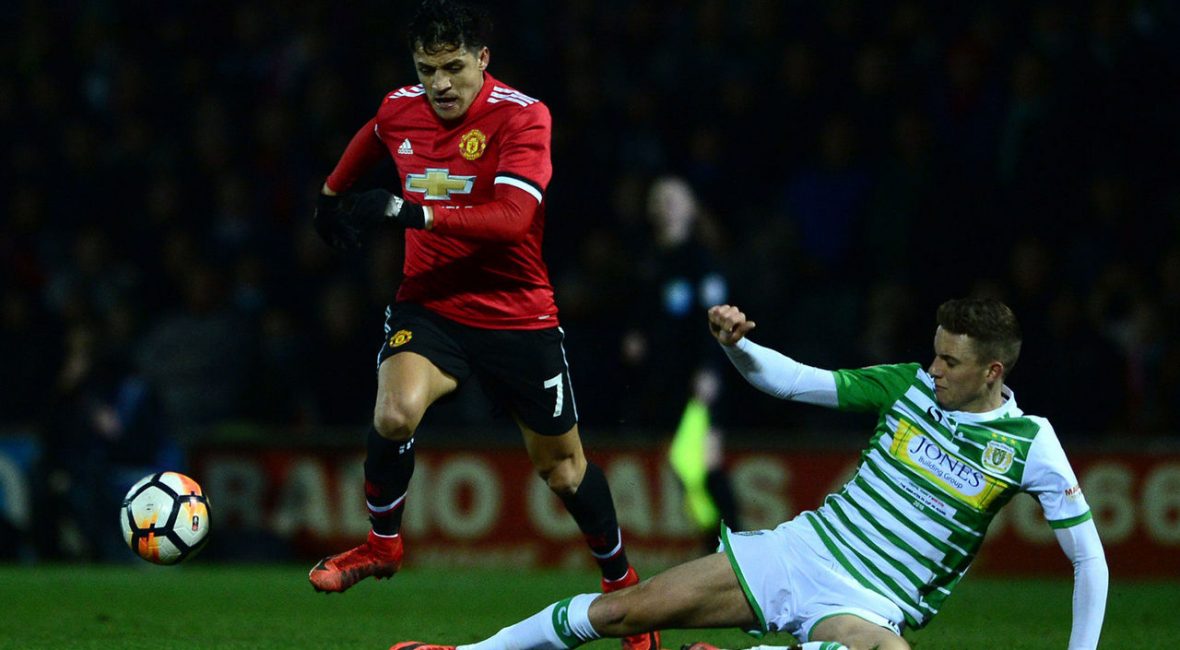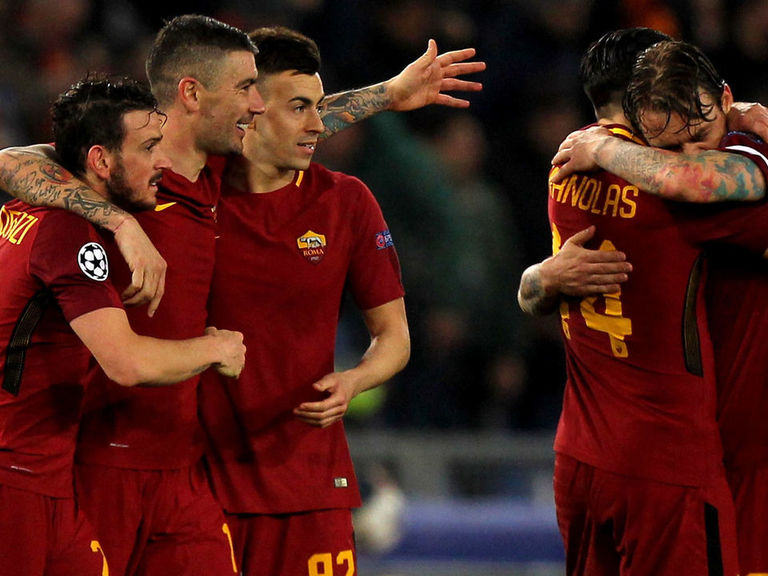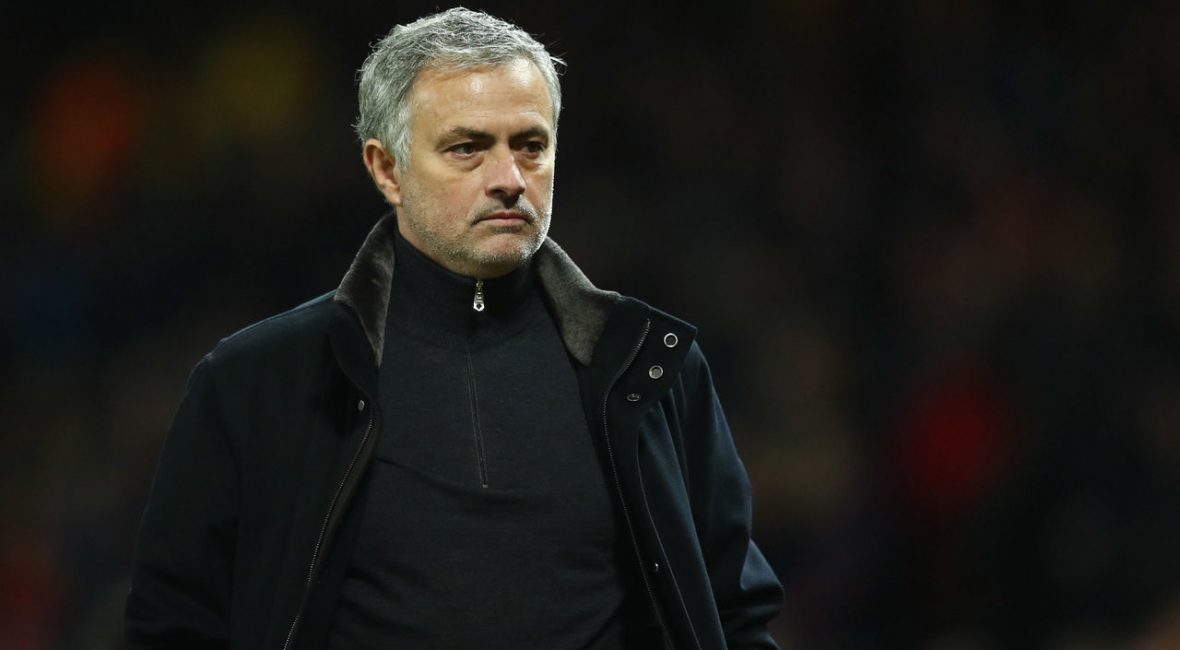The birthday gift that Jim Pallotta wanted most was delivered at the Stadio Olimpico just before 10 p.m. local time. Roma’s president, who turned 60 years old on Tuesday, was not there in person to receive it, but you can be sure he was following along somewhere as Edin Dzeko slipped behind the Shakhtar Donetsk defence, running onto a beautiful pass from Kevin Strootman, and dispatching it into the corner of the net.
This was the 500th goal that Roma had scored since Pallotta took charge in the summer of 2012, and undoubtedly one of the most significant. It gave the Giallorossi an aggregate advantage over Shakhtar Donetsk with fewer than 40 minutes left to play in their Champions League last-16 clash. It was enough to seal a 1-0 win on the night, and victory by away goals in the two-legged tie.
In purely monetary terms, this was a lavish birthday treat. Qualification to the quarter-finals will earn Roma upward of €10 million between prize money, broadcast revenue, and additional gate receipts. For a club that posted losses of more than €40 million on last season’s accounts, and which has been working to avoid further Financial Fair Play sanctions from UEFA, that is no small change.
Yet this triumph meant far more to Roma than could be explained by a mere balance sheet. The Giallorossi had not reached the quarter-finals of this competition for a decade. Indeed, they have only gone so far on three previous occasions in the entire 62-year history of the European Cup.
This is not a team suffering from any delusions about its standing in the continental pecking order. Ahead of last month’s first leg, club captain Daniele De Rossi observed that there were “two or three teams in this season’s Champions League against whom, in all probability, we would already be beaten before kick-off.”
Shakhtar, though, was not one of them. The Ukrainians had performed excellently in this year’s competition, eliminating a Napoli team that currently sits 14 points ahead of Roma in Serie A. Napoli had won three out of four previous head-to-heads with the Giallorossi in this competition, too. But they were not Barcelona, Manchester City, or Real Madrid. Roma knew that this was a team it was capable of beating.
And if not now, then when? How long might Roma have to wait before its next such amenable draw in the Champions League knock-out phase? Yes, the team had earned the right to play one of the group stage runners-up, by finishing top of its own pool. But so had Tottenham, Paris Saint-Germain, and Besiktas, who were rewarded with ties against powerhouses Juventus, Madrid, and Bayern Munich, respectively.
Even to get back this far next season is far from assured. Roma occupies third place in Serie A for now, but the competition is fierce with Lazio, AC Milan, and Internazionale all effectively fighting for two Champions League places behind Juventus and Napoli.
The reality is, furthermore, that even with the additional income generated by reaching the quarter-finals, Roma will likely have to sell at least one important member of its starting XI at the end of this season to balance the books. Last summer, Mohamed Salah and Antonio Rudiger both departed. Next could be Dzeko, or perhaps the goalkeeper Alisson.
It is up to the sporting director, Monchi, to ensure that such departures are offset by fresh talent coming in. But it is up to the players that Roma already has to deliver on their potential in such time as they have together.
They did so here, despite a cautious start and a nervy finish. Credit is due to the manager, Eusebio Di Francesco, for reassuring his team that there was no need to panic if the goal that it needed after losing the first leg 2-1 did not arrive right away.
Roma has built its Champions League run first and foremost on the reliability of its defending at home. The team is yet to concede a goal at the Olimpico in this year’s tournament, despite having hosted Atletico Madrid, Chelsea, and now this Shakhtar team overflowing with Brazilian attacking talent. Roma did not wobble here until the very end, allowing the visitor a pair of half-chances in injury time. Even then, Alisson never had to make a save.
There were times in the first half when Roma’s lack of attacking impetus felt frustrating. Di Francesco, though, was right to trust that Dzeko would find a way.
The Bosnian remains a peculiarly underappreciated player – the only man to have scored more than 50 goals in three of Europe’s top five leagues (Serie A, Premier League, and Bundesliga) and yet is never truly talked about as one of Europe’s elite forwards. Perhaps that is because he had never before gone beyond the last-16 of the continent’s elite competition.
He was nerveless when his opportunity arrived here, needing just one touch to beat Andriy Pyatov. Dzeko was a constant thorn in Shakhtar’s side for the rest of the game, too, almost adding a second from the edge of the box and then coaxing Ivan Ordets into a red card when he got goal-side of the defender with just over 10 minutes remaining.
His hold-up play, furthermore, helped Roma to keep the ball away from Shakhtar’s own frightening forwards. After serving Pallotta with such a generous birthday gift, he could not allow the occasion to be spoiled by some unwelcome party guest.


















